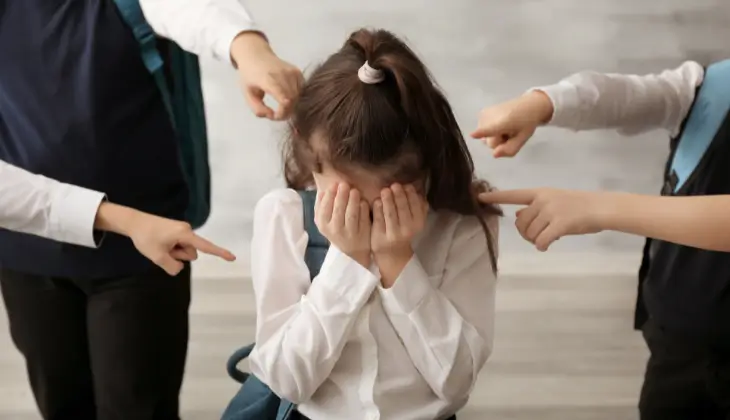Bullying is more than an unpleasant rite of passage; it leaves deep emotional scars for most children, affecting their self-perception and mental well-being. Whether bullying occurs in school hallways, playgrounds, or online, it has profound and far-reaching effects on a child's emotional and psychological health.
This blog discusses the emotional cost bullying inflicts on children, short- and long-term impacts, the silent threat of cyberbullying, and what parents, educators, and caregivers can do in practical ways to prevent and mitigate this significant problem.
The Emotional Burden of Bullying
Bullying occurs in different manners: physical aggression, verbal taunts, social exclusion, and now cyberbullying. Although the mode differs, the psychological consequences are, more often than not the same—fear, anxiety, depression, and a sense of loneliness.
Short-term Emotional Effects
The immediate effects of bullying on a child can be devastating . The fear of running into their tormentor keeps them away from school, or they withdraw from activities in which they used to have fun. Many children appear powerless and confused, asking themselves why they are being picked on.
Impact on Self-esteem
Bullying strips away self-esteem, making children believe they deserve neither respect nor kindness. Victims often internalize hurtful words and actions, which can lead to inferiority and self-doubt. Over time, they may start believing the cruel labels assigned to them by bullies.
Behavioral Changes
Parents and teachers may notice behavioral changes in a bullied child:
Social withdrawal
- A sudden drop in academic performance
Altered sleeping or eating patterns
Unexplained physical symptoms like headaches or stomach aches.
A Personal Perspective
Let us consider the case of Maya, who was 10 years old and hated going to school. Her classmates ridiculed her for wearing glasses, calling her "four eyes" in the presence of the whole class. Maya gradually stopped participating in discussions in class, avoided social contacts, and became anxious even at home. Maya's story is one of many illustrating the emotional toll of bullying.
Long-term Psychological Implications
While the immediate after- effect of bullying is scary , what is even more dreadful could be the long-term mental disorder that it could impose upon a person.
Recurrent Anxiety and Depression
Usually, the victim of bullying goes on to develop chronic anxiety or depression and even post-traumatic stress disorder. They tend to be always sorrowful, worthless, and hopelessly sad.
Lack of Trust and Relating to People
Children who have been bullied tend to become distrusting, and because of this, they find difficulties in developing healthy relationships over time. They may become far too protective or, rather, extremely dependent on someone else for validation.
Academic and Career Setbacks
Bullying can deprive children of the urge to perform well in school, and this may lead to poor grades and low self-esteem. When they grow up, the fear of criticism or rejection may limit them in their professional lives.
Research Insights
A 2022 JAMA Pediatrics study showed that adults who were bullied as children are at a significantly higher risk of developing anxiety disorders, depression, and suicidal ideation. The study calls for early intervention to counteract the long-term effects.
Cyberbullying: The Silent Threat
In the digital age, bullying has crossed school walls and invaded the private lives of children through social media, messaging apps, and online gaming platforms.
Why Cyberbullying is Particularly Devastating
Cyberbullying cannot be easily escaped as traditional bullying. Anonymity behind online spaces gives bullies a lot of freedom, whereas permanence in the content online serves to intensify humiliation a victim goes through.
Emotional Impact
The victim of cyberbullying commonly experiences a feeling of loneliness, shame, and hopelessness. The factor that adds another layer of emotional hurt is that one's suffering is witnessed by a broad audience.
Recent Statistics
According to the Pew Research Center, a report in 2023 reveals that nearly 59% of teenagers in the United States have faced some form of cyberbullying. Many of these cases are not reported and leave children alone to cope with the emotional aftermath.
How Parents and Caregivers Can Help
- Recognizing the Signs
It is important that parents and guardians keep their children attentive to behavioral and emotional changes. Some signs that a child may be being bullied are as follows:
- Avoidance of going to school
-Unexplained injuries
-Suddenly changed mood or behavior
-Noticeable social withdrawal
-Creating a Safe Space
Open communication is the core. Make your child speak out about their feelings not fearing judgment or repercussions on them. Let them know it is not them alone. Their experiences are valid.
Build Resilience
Encourage children to cope. Teach them to:
-Cope with negative self-talk.
-Engage in hobbies, activities that make them feel they can do things.
-Enable them to be assertive so they can stand their ground when necessary.
-Working with Schools
-Engage with teachers, counselors, and school administrators to address bullying incidents. Many schools have anti-bullying policies in place, but proactive parental involvement often yields better results.
- Managing Online Presence
For cases of cyberbullying, set clear boundaries around screen time and encourage responsible internet use. Regularly monitor your child's online interactions to ensure they feel safe in the digital world.
- Preventing Bullying Through Awareness and Education
Fostering Empathy in Children :
Educate kids early to show compassion and to feel other people's feelings. Explain how their words and actions will impact other people.
The Role of Schools
The schools prevent bullying by enacting policies on inclusivity, tolerance, and ways to resolve conflict. Educating teachers about identification and action is equally crucial.
Community Involvement
Communities can fight bullying through awareness campaigns, workshops, and support groups. Collective action can bring about a culture of empathy and accountability.
Conclusion
Bullying is not a phase; it is a serious issue that can have lifelong consequences for a child's emotional and psychological well-being. Understanding the signs, taking proactive measures, and fostering a culture of kindness and inclusion will help children navigate these challenges and emerge stronger.
Every child deserves the security of feeling valued and supported. Parents, teachers, and communities can work together to shape a world that has no tolerance for bullying, wherein every child thrives not fearful of judgment or harm.
Let the silence of bullying be one to be erased from the fabric of our world. Let's take the pledge to be vigilante, compassionate, and active towards the protection of a child's emotional well-being.
Solh understands. We offer a variety of features to help you dealing with Bullying :
Prarambh Life De-addiction : Prarambh Life De-addiction Program Prarambh Life De-addiction program is an organized attempt at breaking free from substance dependency. The program, therefore not only helps in the recovery but also in building mental well-being by teaching healthy coping mechanisms and developing a friendly environment. With personalized counseling, mindfulness practice, and holistic focus on mental wellbeing, Prarambh rebuilds the lives of individuals, full of resilience and newfound purpose.
Streffie : Streffie, a unique feature by Solh Wellness, empowers individuals to track and analyze their moods using a vibrant palette of expressive emojis. By scanning your face, it provides real-time insights into your stress levels, enabling you to uncover depression triggers, recognize patterns, and make necessary adjustments for emotional balance. Streffie acts as a self-awareness tool, helping individuals identify early signs of emotional shifts, understand stress contributors, and take proactive steps toward managing depressive episodes through informed communication.
Journaling for Self-Reflection: At times, not taking care of oneself is not understanding oneself. Solh's journal feature gives you the room to voice your thoughts and emotions. Reflecting on experiences and desires is like finding out what holds you from self-care.
Anonymous Support Groups: You are not alone. Solh's anonymous support groups of Bullying connect you to others who know exactly what the hassle is all about. Share your experiences, find comfort in solidarity, and discover new perspectives on overcoming the hurdle to indulge in self-care.
Solh Buddy: Ever feel completely lost in the woods or utterly disconnected? Your Solh Buddy is here for you-personalized, virtual support. It can give you prompts, celebrate your wins, and remind you of your strengths as you journey toward self-care.
Talk now: Sometimes dealing with Bullying can be overwhelming. With the Talk Now feature in Solh, access counselors who will walk you through those moments.
Solh believes in a unique way of introducing self-care. We empower you to take charge of your well-being by offering a range of tools. Explore Solh today and discover the power of self-reflection, connection, and support in overcoming any problem of the mind. You're not alone on this path.
Balance Your Life with the Solh App
The Solh App made wellness easier. This innovation, Streffie-a stress monitor-will identify and measure both perceived and actual stress levels. You're in control of your mental well-being and can be better at prioritizing self-care and having a good work-life balance with the help of actionable insights from Solh.
Download the Solh App today and start towards a life free from stress and imbalance!








